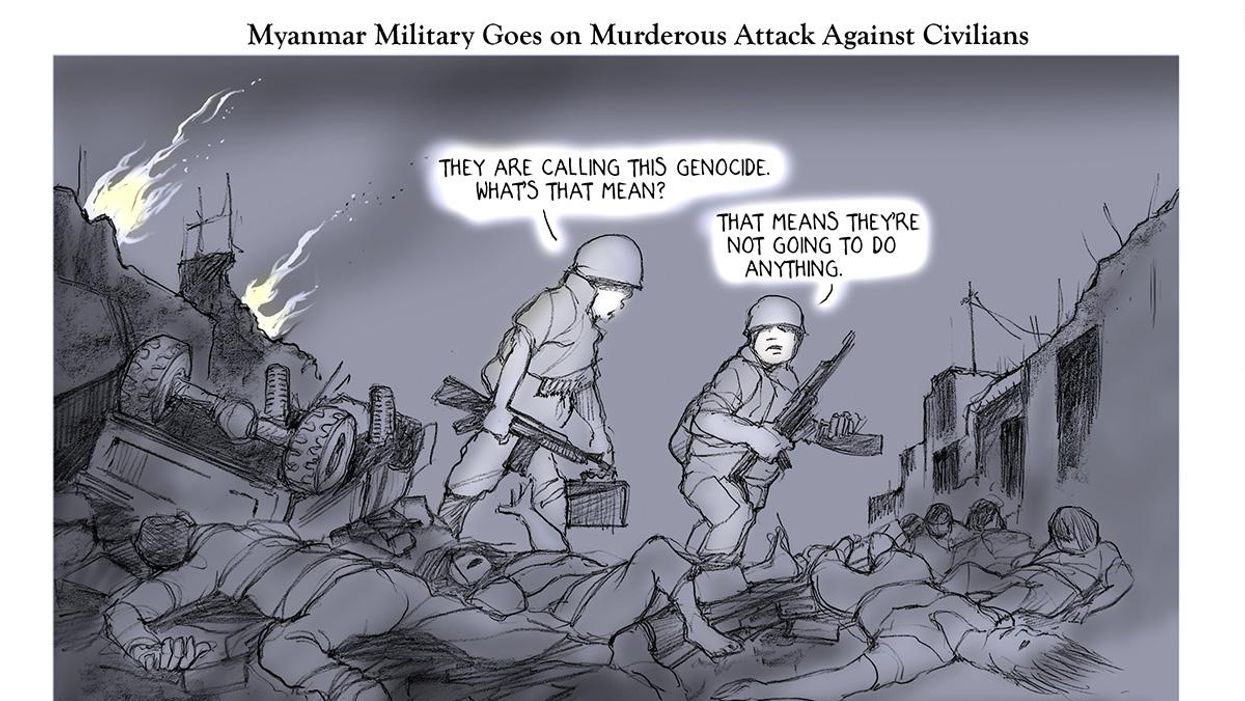He wanted to start a race war.
That, you will recall, was what authorities say white supremacist Dylann Roof had in mind when he shot up a storied African-American church in June. It might have surprised him to learn that we’ve already had a race war.
No, that’s not how one typically thinks of World War II, but it takes only a cursory consideration of that war’s causes and effects to make the case. Germany killed 6 million Jews and rampaged through Poland and the Soviet Union because it considered Jews and Slavs subhuman. The Japanese stormed through China and other Asian outposts in the conviction that they were a superior people and that Americans, as a decadent and mongrel people, could do nothing about it.
Meantime, this country was busy imprisoning 120,000 of its citizens of Japanese ancestry in concentration camps and plunging into a war against racial hatred with a Jim Crow military. The American war effort was undermined repeatedly by race riots — whites attacking blacks at a shipyard in Mobile, white servicemen beating up Mexican-Americans in Los Angeles, to name two examples.
So no, it is not a stretch to call that war a race war.
It ended on August 15, 1945. V-J — Victory over Japan — Day was when the surrender was announced, the day of blissfully drunken revelry from Times Square in New York to Market Street in San Francisco. But for all practical purposes, the war had actually ended nine days before — 70 years ago Thursday — in a noiseless flash of light over the Japanese city of Hiroshima. One person who survived — as least 60,000 people would not — described it as a “sheet of sun.”
The destruction of Hiroshima by an atomic bomb — Nagasaki followed three days later — did not just end the war. It also ushered in a new era: the nuclear age. To those of us who were children then, nuclear power was what turned Peter Parker into a human spider and that lizard into Godzilla.
It was also what air-raid sirens were screaming about when the teacher told you to get down under your desk, hands clasped behind your neck. We called them “drop drills.” No one ever explained to us how putting an inch of laminated particle board between you and a nuclear explosion might save you. None of us ever thought to ask. We simply accepted it, went to school alongside this most terrifying legacy of the great race war, and thought nothing of it.
The world has seen plenty of race wars — meaning tribalistic violence — before and since 1945. Ask the Armenians, the Tutsis, the Darfurians. Ask the Congolese, the Cambodians, the Herero. Ask the Cherokee. The childish urge of the human species to divide itself and destroy itself has splashed oceans of blood across the history of the world.
The difference 70 years ago was the scope of the thing — and that spectacular ending. For the first time, our species now had the ability to destroy itself. We were still driven by the same childish urge. Only now, we were children playing with matches.
This is the fearsome reality that has shadowed my generation down seven decades, from schoolchildren doing drop drills to grandparents watching grandchildren play in the park. And the idea that we might someday forge peace among the warring factions of the planet, find a way to help our kind overcome tribal hatred before it’s too late, has perhaps come to seem idealistic, visionary, naïve, a tired ’60s holdover, a song John Lennon once sang that’s nice to listen to but not at all realistic.
Maybe it’s all those things.
Though 70 years after a flash of soundless light blasted away 60,000 lives, you have to wonder what better options we’ve got. But then, I’m biased.
You see, I have grandchildren playing in the park.
(Leonard Pitts is a columnist for The Miami Herald, 1 Herald Plaza, Miami, FL, 33132. Readers may contact him via email at lpitts@miamiherald.com.)
Photo: Artūrs Gedvillo via Flickr




